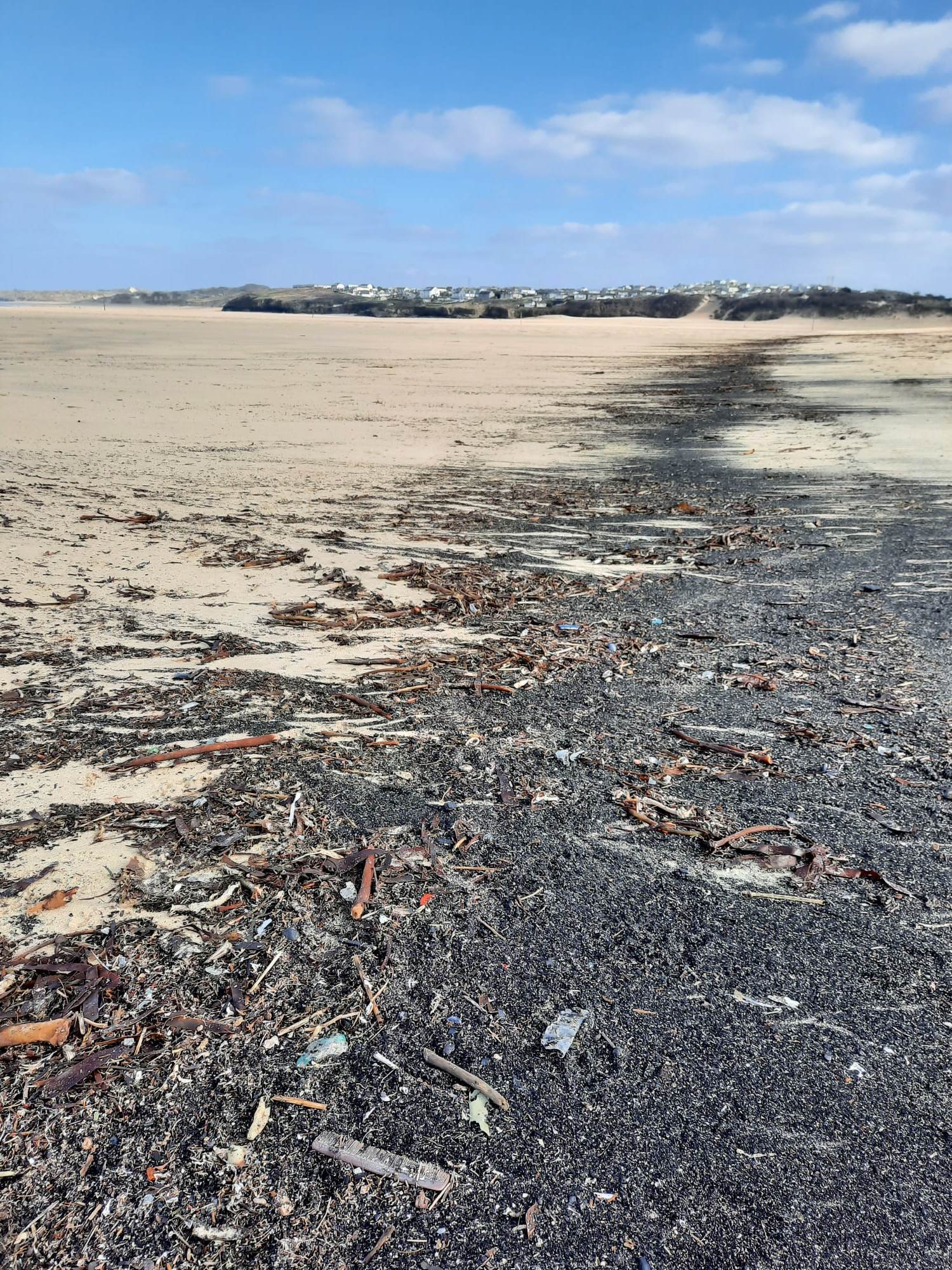It’s been a cold, miserable winter so I’ve unfortunately not been on a beach walk for a while. That’s why, when the sunshine made its beautiful reappearance this weekend, I made the most of the weather and got down to Porthkidney Beach in Lelant (near St Ives). It’s one of my absolute favourite beaches: when the tide’s out, the expanse of sand and sky is just spectacular. It’s also one of the rare year-round dog-friendly beaches in the area – perfect if you feel like taking your four-legged friend out, too. The atmosphere was, however, disrupted my disgust at the sheer quantity of rubbish littering the beach. I find it so upsetting to see our environment disrespected in this way, especially when it’s so unnecessary. My family and I are passionate about beach cleaning and often take a bag to the beach so that we can pick up rubbish while walking along. Here’s why it’s so important that we all do our part to help.
Why is it important to keep the beach clean?
In Cornwall, we have an abundance of stunning beaches. As locals, we obviously want to keep them beautiful so that we can continue to be proud to live in this area of natural beauty.
This weekend, though, I could barely go two steps without having to stop to pick up a piece of rubbish.
Of course, it’s not pleasant to walk among litter on the beach, but the fact is that a lot of rubbish left behind is dangerous. Over the years, I’ve found a huge number of sharp cans, broken glass, and disposable barbeques (some still hot!). It’s so irresponsible and disrespectful to leave these items which could seriously hurt another beachgoer, whether that be an adult, child, or dog. There are dozens of horror stories from dangerous objects being left in the sand, such as this one on Cornwall Live.
On my recent walk, I found a huge amount of plastic from bottles broken down by the tides and waves. But don’t be tempted to think that just because these are not sharp does not mean they do not pose a threat. The truth is that all litter on our beaches – regardless of shape and size – is not only visually annoying but also causes significant damage to wildlife, and the local and global ecosystem.
The bigger picture
Our global issue with plastic is no secret. Over recent years, there have been countless heart-breaking news stories covering the devastation of plastic pollution: aquatic animals being tangled in rubbish; and others ingesting microplastics and related toxins. The problem has grown to such a degree that whole species have become at risk of extinction as a result. The fact that this issue is no secret means that there is no excuse.
I could go on about plastic production and single-use plastics, but that’s probably a large enough subject to have its own blog post in the future. Watch this space!
What’s that I hear you asking… “I want to take action to save our environment, so where do I start?”



How we can all help
We all need to do our bit to keep our environment clean, for ourselves and for future generations. If everyone helped just a little, it would make a big difference.
The best way to achieve a clean beach is to obviously stop it getting messy in the first place!
Yes, I’m talking about prevention. If you’re going out for the day, either put your litter in a bin or take it home with you. Don’t be that thoughtless idiot who leaves it behind in the sand. You had to carry it down to the beach with you so there’s really no excuse not to carry it back with you again (if you can’t find a bin). After all, the food will have been eaten and the drinks drunk, so their containers will be lighter to carry on the journey back!
Volunteer with a beach cleaning group.
There are lots of groups who organise beach cleans up and down the county, so you’re bound to find one near you. The most well-known organisations championing beach cleaning include Surfers Against Sewage, Beach Guardian, and the 2 Minute Foundation. Their social media pages are also great sources of information and news.
Alternatively, you can search for one-off beach cleaning events online.
They’re super easy to find, just search on Google or social media for “beach clean near me” or “beach clean YOUR LOCATION” which will throw up lots of options for upcoming events.
If you prefer to go it alone, or stick with your own family and friends, there’s no harm in that!
The charity, 2 Minute Foundation have set up beach cleaning stations around the county where you can pick up a bin bag and litter picker. This is brilliant as it means that if you find yourself near a beach and are unprepared, you can still do your bit! Their philosophy is that if everyone does a little bit, we will all see a big change. After all, if we all just picked up, say, 3-5 items every time we visited the beach, it would cumulatively make a big difference. The charity encourages people to share their beach cleaning trips on social media by using the hashtag #2minutebeachclean.



How to stay safe while beach cleaning
Whilst it’s important to do our bit for the environment, we must make sure we’re keeping ourselves safe at the same time. Here’s some key things to note:
- Always wear gloves or use a litter picker, and thoroughly clean your hands afterwards.
- If you’re going alone, make sure someone knows where you are and how long you will be.
- Avoid dangerous areas, such as slippery rocks and cliff edges.
- Always check the tide times to make sure you have a safe and clear way off the beach.
There are strict rules to follow if you come across dangerous objects, toxic substances or dead animals. For full guidance, Visit Cornwall have a great article which you can read here.
Let’s keep our beaches beautiful!


Respecting our environment: life beyond the beach
Of course, the notion of respecting our environments by keeping them clean extends beyond the beach. Town and city centres, parks and walking trails all deserve to be kept to a clean and healthy standard. We can all do our bit to help, regardless of the type of environment we live in!
I hope this post has inspired you help keep our planet clean and free from litter and contaminants. If you’re a seasoned beach cleaning expert, let me know in the comments what’s the most shocking thing you’ve found.
If you’d like to learn more, the below are great sources of information:


Leave a Reply